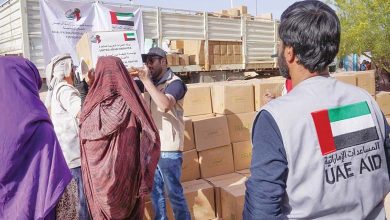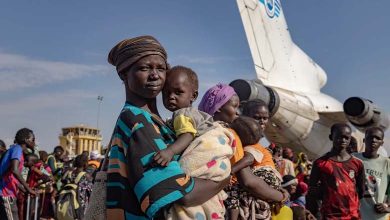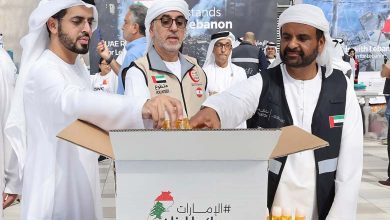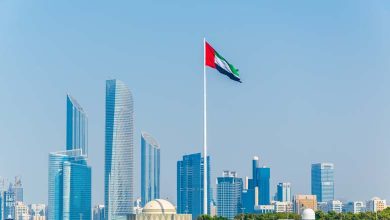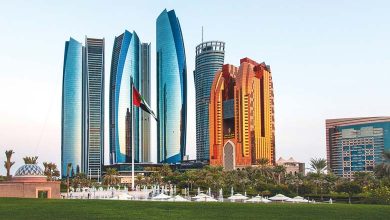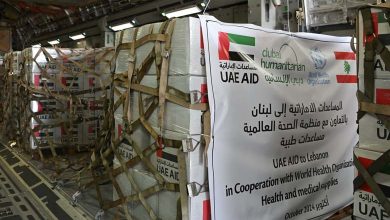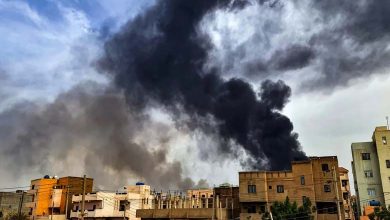UAE: A new mechanism to fight money laundering and terrorist financing
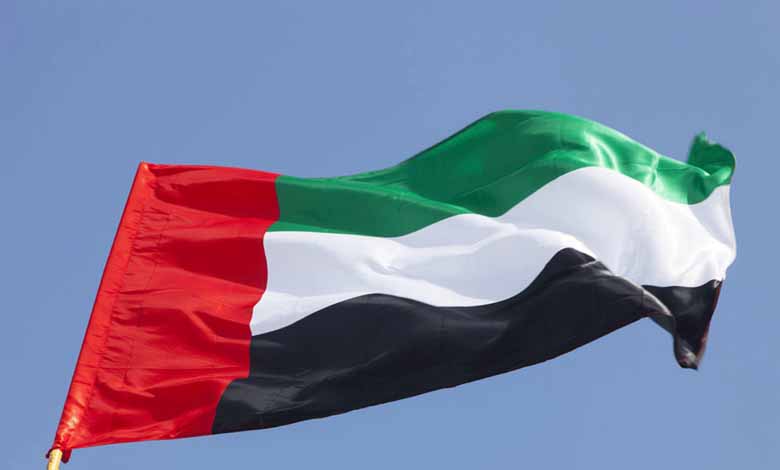
The UAE’s strategy to combat money laundering and the financing of terrorism has been met with broad global praise, most recently from the Financial Action Task Force (FATF).
Serious steps
According to data of the Executive Office for Countering Money Laundering and Terrorist Financing; in 2012, the value of operations and measures to combat money laundering and the financing of terrorism reached $1.048 billion ($3.848 billion).
These amounts are divided between the confiscation of assets worth $625 million ($2.3 billion) and $64 million ($235 million), the fines for non-compliance with the fight against money laundering and the financing of terrorism, and the confiscation of $5.3 million ($19.5 million) as a punishment for major financial institutions in the United Arab Emirates, and penalties of $10.8 million ($39.6 million) for many individuals found guilty of tax evasion and money laundering, and the confiscation of $109 million ($400 million) as preventive measures to combat the financing of terrorism.
Forty-eight defendants and companies were convicted in one case by Abu Dhabi courts on charges of money laundering and fraud. Forty-eight defendants were fined $234 million ($892.3 million).
Record achievement
These data demonstrate significant progress in strengthening the UAE’s approach to combating money-laundering and the financing of terrorism in line with global standards and its commitment to combating financial crime as a national priority.
The United Arab Emirates’ firm commitment to combating money-laundering and the financing of terrorism is a key part of the integrated vision of the United Arab Emirates’ status as an attractive global trading center and keeping pace with the latest developments in growth and development. All prudent measures and effective measures are taken by the Government and the private sector to ensure the stability, sustainability and integrity of the financial system.
These achievements are in line with the National Strategy to Combat Crime and the National Action Plan of the United Arab Emirates.
The Financial Action Task Force (FATF) praised the positive progress made by the UAE in combating money laundering, terrorist financing and arms proliferation, as part of the UAE’s tireless efforts to develop its national system to combat money laundering, terrorist financing and arms proliferation.
This came during the General Meeting of the Group, on March 4, 2022, where the Post-Monitoring Report on the State of the United Arab Emirates was discussed, in addition to the approval of the Action Plan for the State in the coming period.
In order to follow up on the completion of this plan and support the sustainability of the State’s efforts to develop the financial compliance system, the FATF Financial Action Task Force (FATF) has taken a decision to place the United Arab Emirates within the Group’s “enhanced monitoring” framework.
The United Arab Emirates has significantly enhanced the effectiveness of its national system to combat money-laundering and the financing of terrorism. This progress has been widely praised by many international partners and organizations, as well as by the most prominent experts working in this field.
Unprecedented Progress
According to the Emirates News Agency (WAM), senior officials in the UAE affirmed their country’s strong commitment and continued efforts to combat money laundering and terrorist financing.
They also affirmed the UAE’s commitment at the highest level to combating financial crime in accordance with the Global Agenda to Combat Money Laundering and the Financing of Terrorism, which remains a strategic priority for the UAE.
Deputy Prime Minister and Minister of Interior Lt. Gen. Sheik Saif bin Zayed Al Nahyan said: “The ongoing efforts to strengthen the anti-money-laundering regime in the United Arab Emirates are testimony to our strong commitment to combating this global problem as a strategic priority. I appreciate the efforts of the Ministry of Finance, the Ministry of Justice and Public Prosecutions, the Ministry of Economy, the Central Bank of the United Arab Emirates, the security forces, the Emirati police, customs, the Financial Information Unit and all stakeholders working closely and diligently to combat financial crime… Our efforts to protect our security and economic prosperity always come first”.
Sheik Abdullah bin Zayed Al Nahyan, Minister of Foreign Affairs and International Cooperation and Chairman of the Supreme Committee overseeing the national strategy to combat money laundering and terrorist financing, said: “The UAE is keen to accelerate the pace of the National Action Plan to Combat Money Laundering and the Financing of Terrorism, stressing that this issue is a strategic priority for the state…
Dr. Anwar Gargash, diplomatic advisor to the UAE President, said in a tweet on his official Twitter account, “The UAE’s firm commitment to combating money laundering and terrorist financing is a national priority as many economies are facing this crime. As a major economic hub, we remain determined to strengthen strategic cooperation with our partners to meet this global challenge”.
The UAE has made significant progress in combating financial crime through a national strategy and effective cooperation between the public and private sectors, said the UAE president’s diplomatic advisor. We continue to enhance the UAE’s position as a leading economic engine at all levels, regionally and globally.
Khalid Mohammed Belamaa, Governor of the Central Bank of the United Arab Emirates and Chairman of the National Committee to Combat Money Laundering, Terrorist Financing and the Financing of Illegal Organizations, said that the United Arab Emirates started, years ago, to work to strengthen its system, which is characterized by complementarity and sustainability to confront financial crimes in all its forms and types, in order to protect the local and global financial system and ensure its safety. This comes as the State enters a new phase of visions and future ambitions aimed at becoming the best countries in the world in economic and social development.
Private sector
The UAE private sector is a strategic partner in supporting its efforts and implementing the State’s international commitments in this regard, which are directly related to the extent to which the private sector complies with the legal requirements and procedures announced by the competent authorities, including the Ministry of Economy.
The Ministry of Economy said that the UAE today has an integrated system that works in concert to achieve this national goal, including: The relevant legislation, laws, regulations and decisions, federal and local government institutions and committees concerned with oversight, oversight, awareness-raising, inspection and law enforcement, including the Ministry of the Economy, electronic systems, databases and smart channels, which ensure the implementation of government oversight in accordance with best practices and support effective communication and partnership between the government and the private sector.
The Public-Private Partnership Committee was established as a sub-committee of the National Committee for Combating Money Laundering, Combating the Financing of Terrorism and the Financing of Illegal Organizations.
The committee comprises 17 government agencies and 21 private sector entities, including local and global financial and non-financial institutions.
Hamed Al-Zaabi, Director General of the Executive Office for Combating Money Laundering and the Financing of Terrorism, said in an interview with the Emirates News Agency (WAM): “Significant progress has been made in strengthening the UAE’s approach to combating money laundering and terrorist financing in line with global standards and its commitment to combating financial crime as a national priority”.
Al-Zaabi said the Executive Office for Combating Money Laundering and the Financing of Terrorism worked in close cooperation with all public and private sector partners to strengthen the anti-money laundering and counter-terrorism financing system in all aspects: institutional and legislative as well as effectiveness.
At the institutional level, the Executive Office plays a pivotal role in coordinating national efforts through a system to follow up on indicators and the achievements of various entities, such as oversight bodies, law enforcement agencies and the Financial Information Unit. The Executive Office, in cooperation with the National Committee for Combating Money Laundering, Combating the Financing of Terrorism and the Financing of Arms, and various subcommittees, is implementing the strategy and the national action plan adopted by the Supreme Committee for the Supervision of the National Strategy to Combat Money Laundering and the Financing of Terrorism.
In February 2012, the United Arab Emirates established the Executive Office for Combating Money-Laundering and the Financing of Terrorism to coordinate efforts at the national level. The Office has broad powers to ensure coordination among all Emirati entities in the implementation of the National Action Plan to Combat Money-Laundering and the Financing of Terrorism. The United Arab Emirates has started 8 sectoral and thematic risk assessments as part of the national risk assessment.


